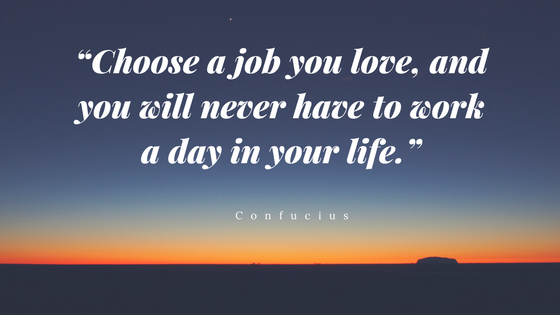Are you looking for that next job or thinking of making a career change? One of the most effective ways to market yourself for the job you want is through understanding your personal brand.
What exactly is a personal brand? Your brand is your reputation, what you’re known for, and how you add value in a way that no one else does. Your brand, as Jeff Bezos once said “is what people say about you when you’re not in the room.”
Many of us are familiar with corporate branding. We see the logos, jingles, tag lines, ads and mission statements that companies create to illustrate their brand. They spend millions of dollars each year intentionally creating their brand. Then they tell us what they want us to think of them. And it works.
Similarly, we all have a personal brand, whether we’re aware of it or not. For most people, this happens by default. Knowing what makes us different is not something we recognize in ourselves or are even taught to think about.
But letting your brand happen by default means you’re likely missing out on job opportunities.
Knowing your brand helps you:
🔰 Identify roles that you will thrive in.
🎉 Stand out from the competition, so that you’re more likely to receive interview requests and job offers.
😃 Earn promotions faster.
🧠 Be more memorable, so that people think of you as opportunities arise.
💵 Command higher salaries.
Knowing your brand, and leveraging it to showcase how you add value, is a powerful way to generate job opportunities and increase salary levels.
So how do you identify your brand?
At the simplest level, your brand is comprised of four components:
Your strengths. 💪
Your strengths are those traits that come naturally to you. They’re an intrinsic part of who you are and how you add value. Examples of strengths are traits such as “creative, versatile and analytical.” Your strengths come as naturally to you as does breathing, and just like you’re not consciously aware of every breath you take, you’re also often unaware of using your strengths. It’s precisely this reason – that they feel so easy to us – that we don’t recognize our strengths as being anything special.
One of the easiest ways to determine your strengths is simply to ask others. Ask people who know you and the work you do for their thoughts on your strengths and the ways you add value.
Your skills. 🤹🏾
A skill is something you’ve learned and mastered through repetition – the “tools” you use to accomplish a task. Your skills include hard skills (skills that are specific to a job and can be measured, such as coding, bookkeeping or copywriting) and transferable skills (soft skills that can be transferred to multiple roles, such as problem-solving or teamwork). To determine the skills most relevant to your brand, consider those that meet two criteria: 1) they’re important to the role you’re seeking and 2) you enjoy using them.
Your experience. 💼
Your experience, both in the job market and in your personal life, is different from anyone else’s. This experience has shaped you into the person you are today, bringing you a perspective to the job that no one else has. When evaluating your personal brand, consider how these experiences, however unrelated they may seem, allow you to add value. Many times it’s these seemingly unrelated experiences that are exactly what gives you a perspective that no one else has.
Your personality. 😃
Your personality, the way you interact with people, is the final component of your brand. It’s how "you do you" in your own unique way.
By themselves, each of these components is a powerful tool in demonstrating your value to an employer. However, it’s the combination of these four elements, when carefully thought through and consciously articulated, that creates a compelling brand unique to you. It’s your special sauce, your unique genius. No one else has what you have. No one else can do the job the way you do it.
And no prospective employer is going to know that unless you tell them.
Knowing your brand, and, most importantly, being able to articulate it to an employer, are the most powerful tools in your arsenal when you’re seeking a new role. Use them to leverage your way to the job, and the salary that you want.
If you’d looking for a job or a promotion and would like to harness the power of your personal brand, schedule a free Discovery Consultation at RevolutionYouCoaching.com, and learn how to leapfrog your career.


















